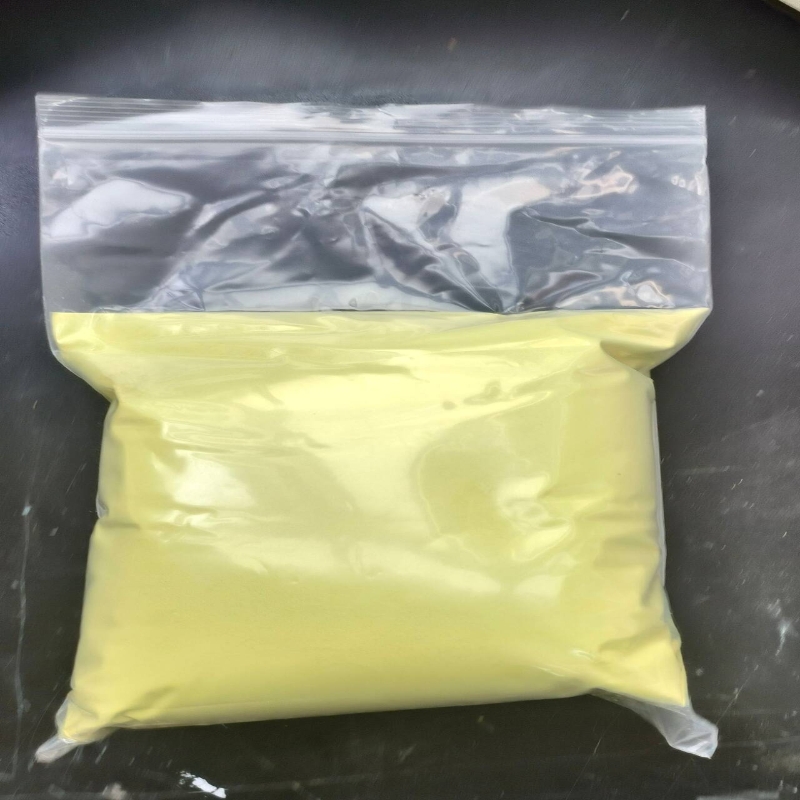-
Categories
-
Pharmaceutical Intermediates
-
Active Pharmaceutical Ingredients
-
Food Additives
- Industrial Coatings
- Agrochemicals
- Dyes and Pigments
- Surfactant
- Flavors and Fragrances
- Chemical Reagents
- Catalyst and Auxiliary
- Natural Products
- Inorganic Chemistry
-
Organic Chemistry
-
Biochemical Engineering
- Analytical Chemistry
- Cosmetic Ingredient
-
Pharmaceutical Intermediates
Promotion
ECHEMI Mall
Wholesale
Weekly Price
Exhibition
News
-
Trade Service
TextMansin
immunotherapy has become a new pillar of cancer treatmentRecently, a growing body of research has shown that the metabolism of tumors is associated with the efficacy of immunotherapyFor example, it has been reported that the increase in the metabolism of melanoma cell glycosasis is associated with resistance to over-secondary T-cell therapy and checkpoint-blocking therapycell metabolism is a key determinant of the viability and function of cancer cells and immune cellsIn order to maintain the huge anabolic demand, the tumor uses a special metabolic mechanism, making its microenvironment usually acidic, oxygen-deprived and/or lacking of key nutrients required by immune cellsTherefore, in fact, tumor metabolism itself is a checkpoint that limits the immune response to cancerIn a new review published July 6 in Review Natures Cancer, two scientists from Johns Hopkins University in the United States discussed in detail which metabolic procedures are critical to the function of specific cells involved in the immune response2) How are these metabolic procedures disrupted by the tumor microenvironment? 3) How does this metabolic disorder affect existing immunotherapy treatments? 4) How should immunity to anti-tumor reaction be enhanced by targeted metabolism? and other issuesThe paper points out that understanding the different metabolic needs of the various types of cells involved in the anti-cancer immune response provides an opportunity for selective regulation of the function of immune cells, and the resulting new therapies are expected to be an option to enhance the efficacy of immunotherapyAs shown in the figure above, metabolically active cancer cells have a profound effect on the tumor microenvironment, resulting in nutrient depletion, hypoxia, acidic environment, and the production of metabolites that produce toxicity at certain concentrationsThis has an important effect on the immune responseNot only does the lack of nutrients and hypoxia create metabolic competition between cancer cells and immersive immune cells, but the production of toxic concentrations of certain metabolites (e.gadenosine, canine, birdine, elevated levels of reactive oxygen and potassium, and increased acidosis) significantly inhibits the anti-tumor immune responsethe following table summarizes the types of immune cells in tumor microenvironmentsAmong them, the effect cells perform killing functions, either from the innate immune system or from the adaptive immune system Anti-tumor-effect cells from the latter include CD4 plus and CD8 plus Teff cells CD8-Teff cells are essential in killing tumor cells directly by inducing apoptosis and cytokine secretion CD4-T cells include many subgroups Some of these subgroups can also provide significant anti-tumor activity, with the most thoroughly studied group is the T helper 1 (TH1) subgroup Unlike immunosuppressive tumor CD4 plus T cells (i.e., regulatory T (Treg) cells, these anti-tumor CD4-T cells are collectively referred to as conventional CD4 plus conv T cells Although CD4-convT cells may be involved in direct tumor cell killing, they promote antitumor immunity primarily through cytokine secretion and assisting in the activation of CD8-T cells Anti-tumor CD4-convT cells share important metabolic characteristics with CD8-Teff cells B cells may also play an effect in the tumor microenvironment Importantly, as part of the adaptive immune system, T-cells and B cells can produce groups of memory cells that can persist for a long time after infection or tumor response sauare CD8 plus memory T (Tmem) cells are an important aspect of long-term tumor control innate cells, such as natural killer cells (NK) and inflammatory macrophages, also play an important anti-tumor effect function tumor microenvironments, there are also immunosuppressive cell groups, including CD4-FOXP3-Treg cells, bone marrow-derived inhibitory cells (MDSCs), anti-inflammatory macrophages, and some B-cell groups Through a variety of mechanisms, including the secretion of cytokines and metabolic disorders, these cells can inhibit or eliminate the role of anti-tumor-effect cell populations finally, antigen-present cells, such as in-tumor dendritic cells (DCs), have been shown to play an important role in maintaining an active adaptive immune response in the tumor microenvironment Many of the substances produced by the metabolism of cancer cells affect the immersion of T cells For example, numerous studies have shown that elevated extracellular lactic acid and H-plus levels in tumor microenvironments inhibit the proliferation, survival, cytotoxicity and cytokine production of T cells The accumulation of specific amino acids in the tumor, such as canine, also inhibits the response of Teff cells Cancer cells have also been reported to inhibit T-cell activity by releasing tumor metabolites (R)-2-hydroxydlydiaric acid (R-2-HG) Increased potassium levels in the tumor microenvironment also limit the effect function of T cells These studies highlight the complex interactionbetween cancer metabolites and immune function in the tumor microenvironment (Figure 2) targeting metabolic processes using small molecules, antibodies, and gene editing can be used to inhibit the metabolism of cancer cells and inhibitory immune cells, as well as to support the metabolism of effect cells Metabolic procedures in inhibitory immunocellular populations and in cancer can be targeted to cause them to consume nutrients, cause toxic metabolites, or induce the failure of metabolic pathways for metabolic control of the effect cell population For the active cell population, metabolic interventions may induce beneficial changes, such as extended life span and antigen-specific immune memory Figures 3 and 2 summarize the potential metabolic targets for enhancing the anti-cancer immune response Numerous studies have shown that checkpoint signals regulate metabolism in tumor microenvironments For example, the expression of PD-L1 on cancer cells can drive the activation and glycoenzyme of Akt-mTOR, increasing the competition between cancer cells and T cells for glucose The signaling of CD155-TIGIT in T cells from human stomach cancer tissue inhibits glucose intake, the production of lactic acid, and the expression of glutase GLUT1 and HK2 On the contrary, the activation of the co-stimulating pathway GITR significantly enhances the metabolic activity and proliferation of T cells In addition, in in vitro studies, PD-1 and CTLA-4 signalconducting in activated human T cells also inhibits the metabolic pathways associated with T-cell activation (if oxygenic solution is available) These findings suggest that the combination of metabolic inhibitors and checkpoint inhibitors is expected to improve the efficacy of checkpoint blocking therapy The following table summarizes metabolic inhibitors with clinical transformation potential, covering a total of 38 representative drug candidates and 27 drug targets table 2 In the conclusions, the authors of the review point out that it is clear that there are clear differences between cancer cells and immunocellular metabolism reprogramming, and that understanding of these differences provides new opportunities to enhance the efficacy of immunotherapy by targeting metabolism, and that this opportunity is expected to be achieved through a number of different strategies, such as inhibiting tumor growth and regulating tumor microenvironments; It is worth mentioning that, in addition to combining metabolic regulation with checkpoint blocking therapy, for t-cell therapy, in vitro drugs or gene reprogramming of T-cell metabolic pathways also provide a means to enhance the efficacy of such therapies (see below) .




![2-(Hydroxymethyl)benzo[b]thiophene](https://file.echemi.com/fileManage/upload/cas/593/e79a972f-b55d-4dc1-9113-841c417e0a89.png)


